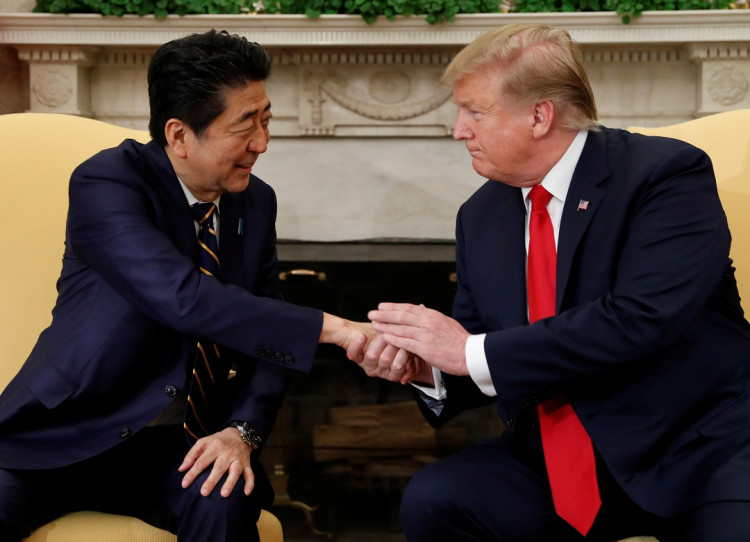At his most recent meeting with Japanese Prime Minister Shinzo Abe, President Donald Trump reportedly pressed Japan to establish more automotive manufacturing facilities in the United States. According to a transcript of their recent meeting, Trump had asked Abe to pressure Japanese automakers to produce more vehicles in the United States and for the government to assist in this endeavor.
During their meeting, the leaders had also discussed the recent announcement made by Japanese automakers to invest more in their US facilities. This included the recent announcements made by Toyota Motor Corp, which promised to inject billions of dollars into the country by establishing additional manufacturing plants in US soil.
Japan's largest automotive company announced last month that it would be significantly increasing its investment plans in the United States to more than US$13 billion over a five-year period. The investment is a US$3 billion increase from the company's previous pledge in 2017.
According to the US ambassador to Japan, William Hagerty, the leaders along with other delegates had discussed enacting measures that would influence more manufacturers to establish their facilities in the United States. Hagerty further explained that all of the economics actually support that type of movement and Trump does feel very positive that the goal is achievable.
Over the weekend, Trump even declared during his campaign rally in Wisconsin that Japan has already committed to investing more than US$40 billion to establish more automotive manufacturing facilities in the United States. Unfortunately, Trump did not really elaborate which of the companies were taking part in the investments nor did he elaborate the timeframe for the planned investments.
Prior to his meeting with the Japanese prime minister, Trump had been threatening to impose added tariffs of as much as 25 percent on all imported vehicles from countries such as Japan and China. The president reasoned that the tariffs were necessary on the grounds of national security. To avert this, Trump urged Japanese automakers to build more facilities and add more jobs in the United States. In return, the US would have to include trading terms that will also be beneficial to Japan but is no less favorable when compared to its terms with other nations.
Following their meeting, Trump announced that Japan and the United States are now on the brink of inking a new bilateral trade deal, which could be finalized during his scheduled visit to Tokyo next month. Trump is also scheduled to attend the upcoming summit of the Group of 20 industrialized nations in Japan in June.






